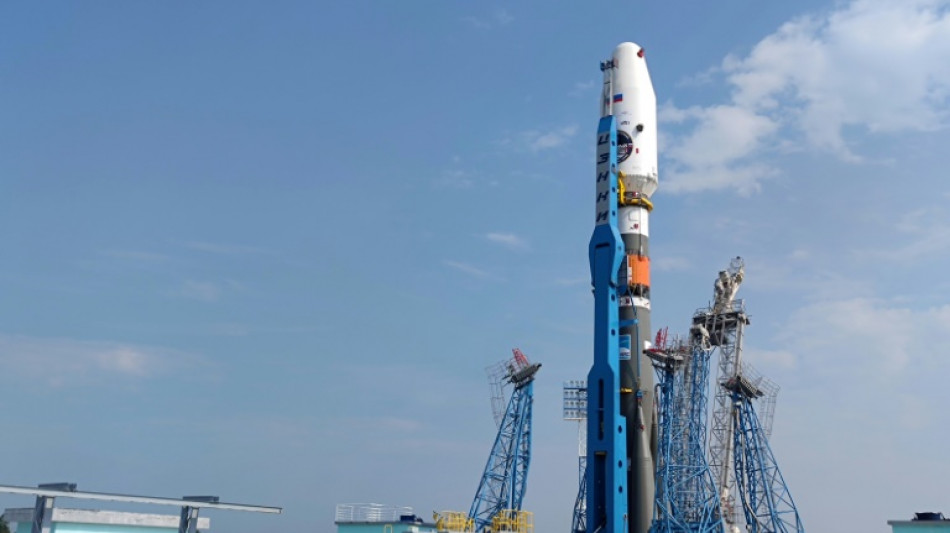
-
 TotalEnergies profits drop as prices slide
TotalEnergies profits drop as prices slide
-
Volkswagen says tariffs will dampen business as profit plunges
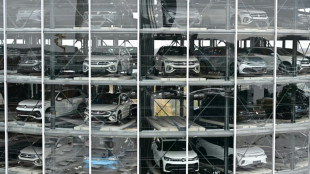
-
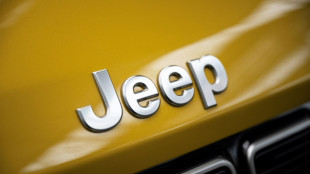 Jeep owner Stellantis suspends 2025 earnings forecast over tariffs
Jeep owner Stellantis suspends 2025 earnings forecast over tariffs
-
China's Shenzhou-19 astronauts return to Earth
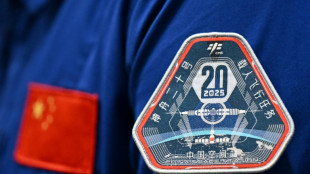
-
 French economy returns to thin growth in first quarter
French economy returns to thin growth in first quarter
-
Ex-Premier League star Li Tie loses appeal in 20-year bribery sentence
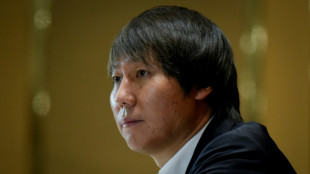
-
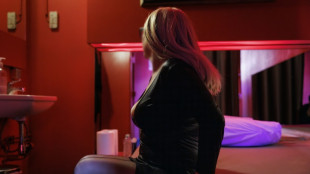 Belgium's green light for red light workers
Belgium's green light for red light workers
-
Haliburton leads comeback as Pacers advance, Celtics clinch
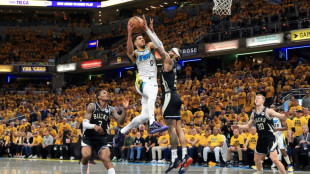
-
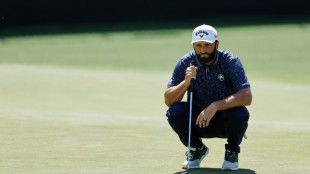 Rahm out to break 2025 win drought ahead of US PGA Championship
Rahm out to break 2025 win drought ahead of US PGA Championship
-
Japan tariff envoy departs for round two of US talks
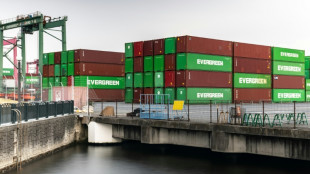
-
 Djurgarden eyeing Chelsea upset in historic Conference League semi-final
Djurgarden eyeing Chelsea upset in historic Conference League semi-final
-
Haliburton leads comeback as Pacers advance, Pistons stay alive
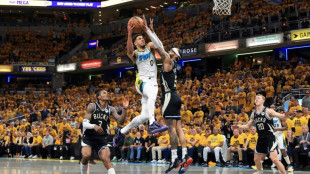
-
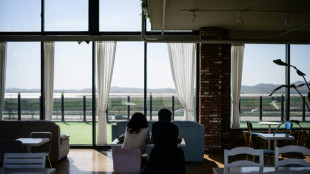 Bunker-cafe on Korean border paints image of peace
Bunker-cafe on Korean border paints image of peace
-
Tunics & turbans: Afghan students don Taliban-imposed uniforms
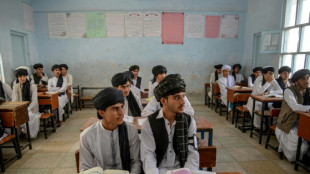
-
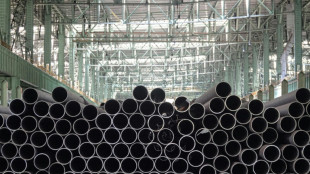 Asian markets struggle as trade war hits China factory activity
Asian markets struggle as trade war hits China factory activity
-
Norwegian success story: Bodo/Glimt's historic run to a European semi-final

-
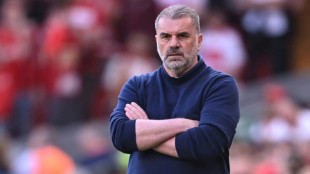 Spurs attempt to grasp Europa League lifeline to save dismal season
Spurs attempt to grasp Europa League lifeline to save dismal season
-
Thawing permafrost dots Siberia with rash of mounds
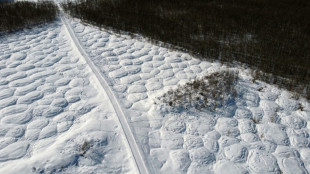
-
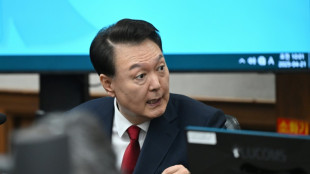 S. Korea prosecutors raid ex-president's house over shaman probe: Yonhap
S. Korea prosecutors raid ex-president's house over shaman probe: Yonhap
-
Filipino cardinal, the 'Asian Francis', is papal contender
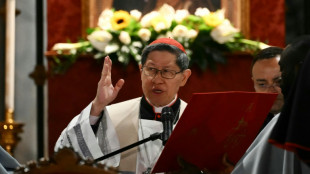
-
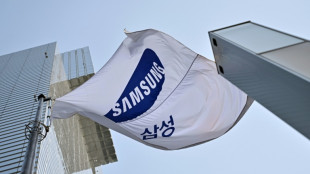 Samsung Electronics posts 22% jump in Q1 net profit
Samsung Electronics posts 22% jump in Q1 net profit
-
Pietro Parolin, career diplomat leading race to be pope
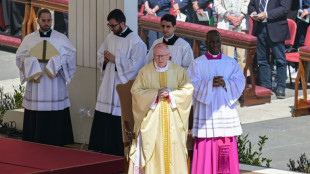
-
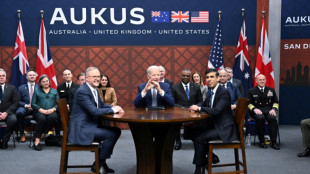 Nuclear submarine deal lurks below surface of Australian election
Nuclear submarine deal lurks below surface of Australian election
-
China's manufacturing shrinks in April as trade war bites
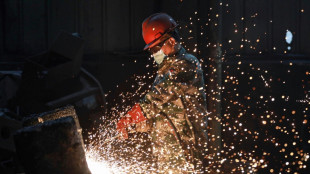
-
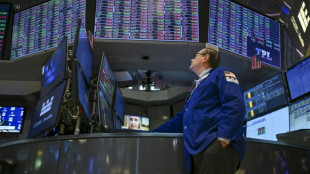 Financial markets may be the last guardrail on Trump
Financial markets may be the last guardrail on Trump
-
Swedish journalist's trial opens in Turkey

-
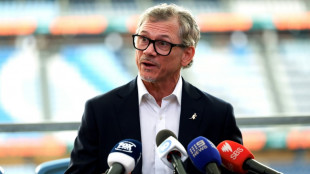 Kiss says 'honour of a lifetime' to coach Wallabies at home World Cup
Kiss says 'honour of a lifetime' to coach Wallabies at home World Cup
-
US growth figure expected to make for tough reading for Trump
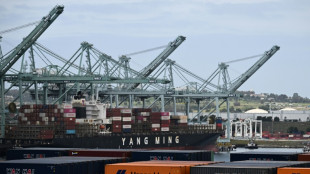
-
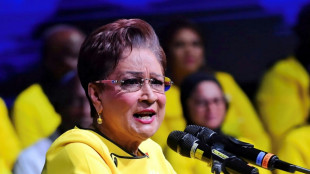 Opposition leader confirmed winner of Trinidad elections
Opposition leader confirmed winner of Trinidad elections
-
Snedeker, Ogilvy to skipper Presidents Cup teams: PGA Tour
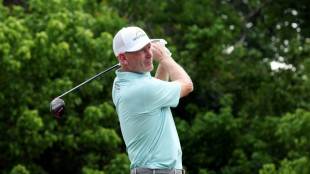
-
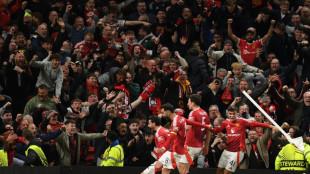 Win or bust in Europa League for Amorim's Man Utd
Win or bust in Europa League for Amorim's Man Utd
-
Trump celebrates 100 days in office with campaign-style rally
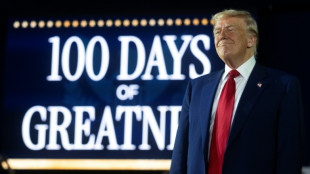
-
 Helium One Global Ltd Announces Jackson-27 Flow Test Results & Gas Analysis Update
Helium One Global Ltd Announces Jackson-27 Flow Test Results & Gas Analysis Update
-
Argo Blockchain PLC Announces Financial Update and Listing Suspension Request

-
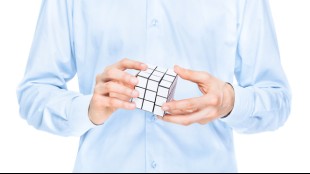 Guardian Metal Resources PLC Announces Tempiute Mine Project - Geological Update
Guardian Metal Resources PLC Announces Tempiute Mine Project - Geological Update
-
Agronomics Limited Announces BlueNalu Expands Partnership with Nomad Foods
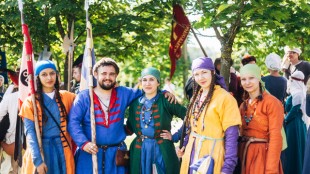
-
 Helium One Global Ltd Announces Jackson-2 Spud at Galactica Project
Helium One Global Ltd Announces Jackson-2 Spud at Galactica Project
-
Global Industry Leaders to Address Critical Trade Changes at Licensing Expo 2025
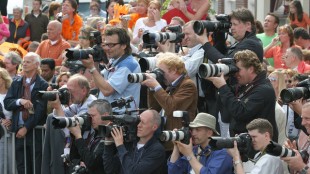
-
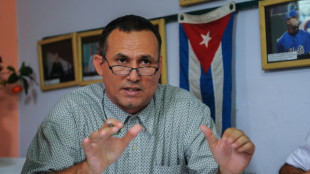 Top Cuban dissidents detained after court revokes parole
Top Cuban dissidents detained after court revokes parole
-
Arteta urges Arsenal to deliver 'special' fightback against PSG
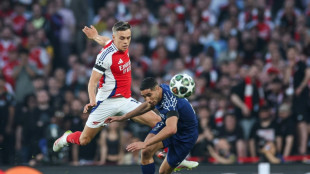
-
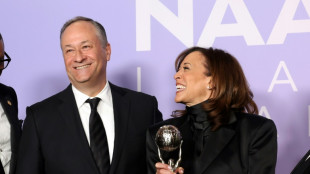 Trump fires Kamala Harris's husband from Holocaust board
Trump fires Kamala Harris's husband from Holocaust board
-
Pakistan says India planning strike as tensions soar over Kashmir attack
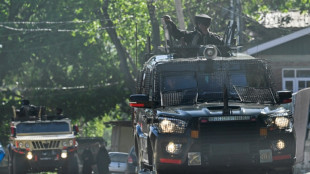
-
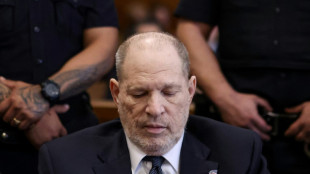 Weinstein sex attack accuser tells court he 'humiliated' her
Weinstein sex attack accuser tells court he 'humiliated' her
-
France accuses Russian military intelligence over cyberattacks
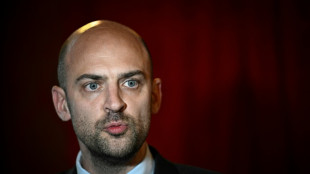
-
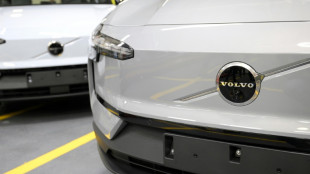 Global stocks mostly rise as Trump grants auto tariff relief
Global stocks mostly rise as Trump grants auto tariff relief
-
Grand Vietnam parade 50 years after the fall of Saigon
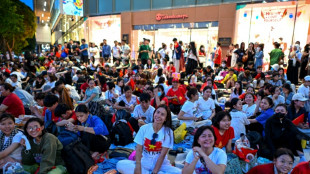
-
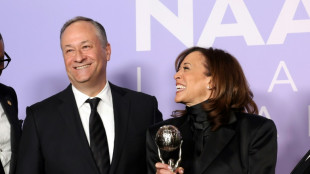 Trump fires ex first gentleman Emhoff from Holocaust board
Trump fires ex first gentleman Emhoff from Holocaust board
-
PSG 'not getting carried away' despite holding edge against Arsenal
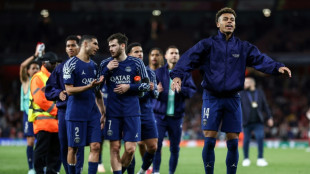
-
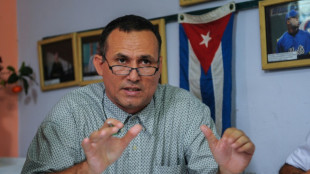 Cuban dissidents detained after court revokes parole
Cuban dissidents detained after court revokes parole
-
Sweden stunned by new deadly gun attack
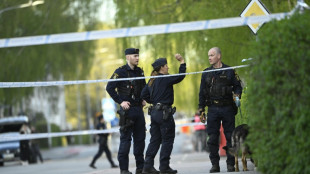

Russia's bruised space programme eyes comeback with lunar launch
Russia is launching its first mission to the Moon's surface in nearly 50 years on Friday, hoping to reclaim prestige in space despite military and diplomatic setbacks at home over the Ukraine conflict.
The Luna-25 launch is Moscow's first lunar mission since 1976, when the Soviet Union boasted a pioneering space programme that has lost its shine because of funding problems and corruption.
The launch from the Vostochny Cosmodrome in the Far East is scheduled for 2:11 am Moscow time Friday (2311 GMT Thursday), Russia's space agency Roscosmos has said.
The four-legged lander weighs around 800 kilogrammes (1,750 pounds) and is set to reach the lunar orbit aroundfive days later.
It is estimated to touch near the Moon's south pole sometime around August 21, a source at Roscosmos told AFP.
Roscosmos said the module would operate for one year and "take and analyse soil samples and conduct long-term scientific research" on lunar surface material and the atmosphere.
Independent space analyst Vitaly Yegorov said the Luna-25 mission was an important test for Russia's space programme.
"So the biggest question will be: can it land?"
President Vladimir Putin wants to strengthen cooperation in space with China and scale back partnerships with the West, mirroring Russia's geopolitical priorities.
Moscow has announced it will end its work with the United States on the International Space Station (ISS) by 2028 and wants to participate in a rival project led by Beijing.
- 'Ambition of our ancestors' -
The European Space Agency (ESA) said it would not cooperate with Moscow on the Luna-25 launch -- as well as future 26 and 27 missions -- after Putin deployed troops in Ukraine last year.
Moscow vowed to go ahead with the mission and replace ESA equipment with Russian-made instruments.
Speaking at the Vostochny Cosmodrome last year, Putin said the Soviet Union had sent the first man to space in 1961 despite a "total" sanction regime.
He said Russia would develop its lunar programme despite Western economic penalties that reached unprecedented levels over the Ukraine conflict.
"We are guided by the ambition of our ancestors to move forward, despite any difficulties and despite external attempts to prevent us from moving," Putin said.
In June, the head of Roscosmos, Yuri Borisov, described the launch as high-risk.
"This mission involves landing at the south pole. No one in the world has ever done such things," he said during a meeting with Putin.
Most Moon landings have occurred near the lunar equator.
"These kinds of missions are always risky," he told the Russian leader, claiming estimates put the chance of success at around 70 percent.
The rocket boosters are predicted to fall in the vicinity of the village of Shakhtinsky in the far-eastern region of Khabarovsk, so the residents of the settlement will be evacuated on Friday morning, local authorities said.
The last Soviet Moon mission in 1976, the Luna 24, brought lunar soil samples back to Earth.
The Soviets launched the first satellite Sputnik, and sent into orbit the first animal, a dog named Laika; the first man, Yuri Gagarin; and the first woman, Valentina Tereshkova.
Russia's programme, which still relies on Soviet-designed technology, has struggled to innovate and the Kremlin has instead prioritised military spending.
It has also been plagued by corruption scandals and botched launches, and faced competition from the United States and growing Chinese ambitions.
T.Ward--AMWN

